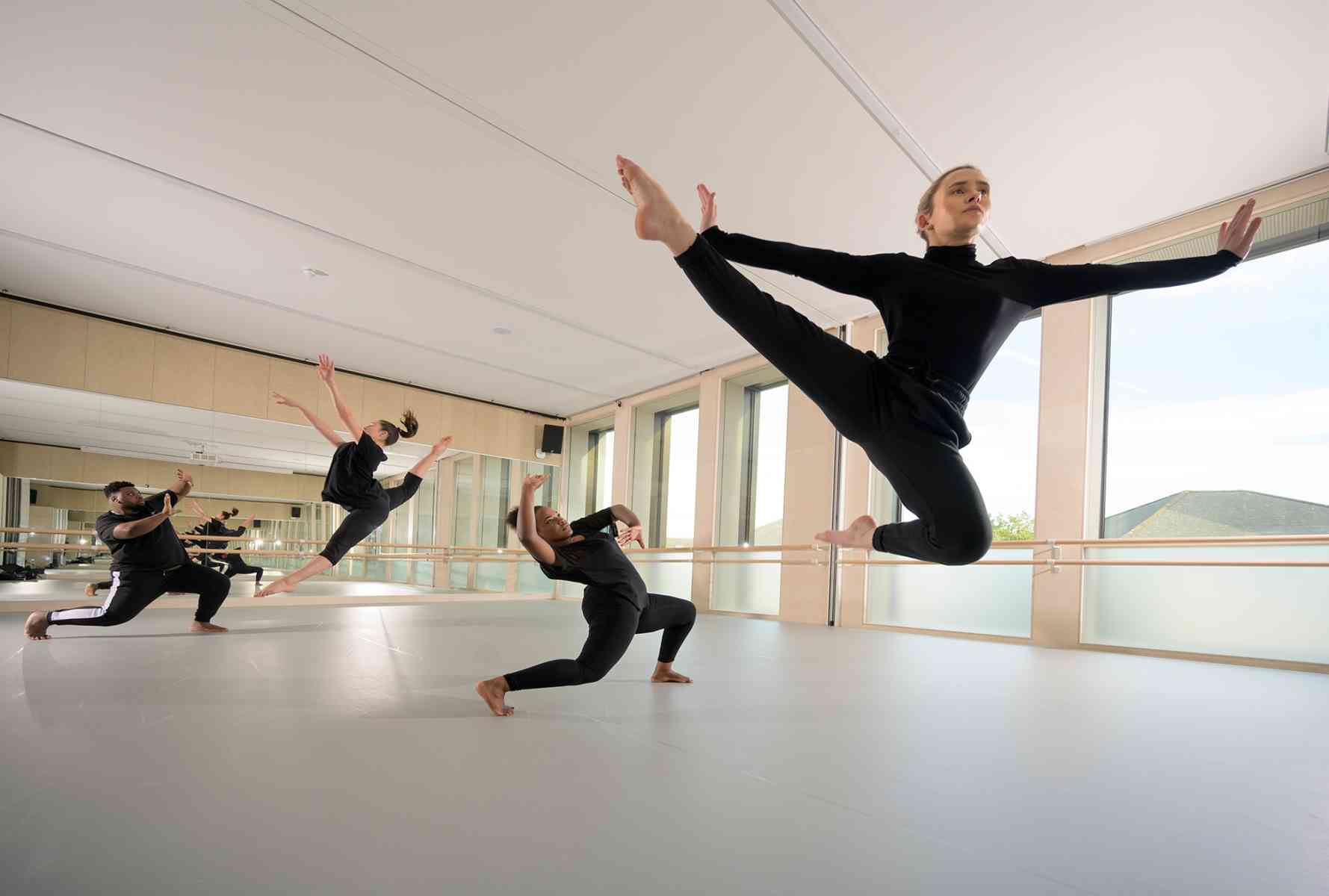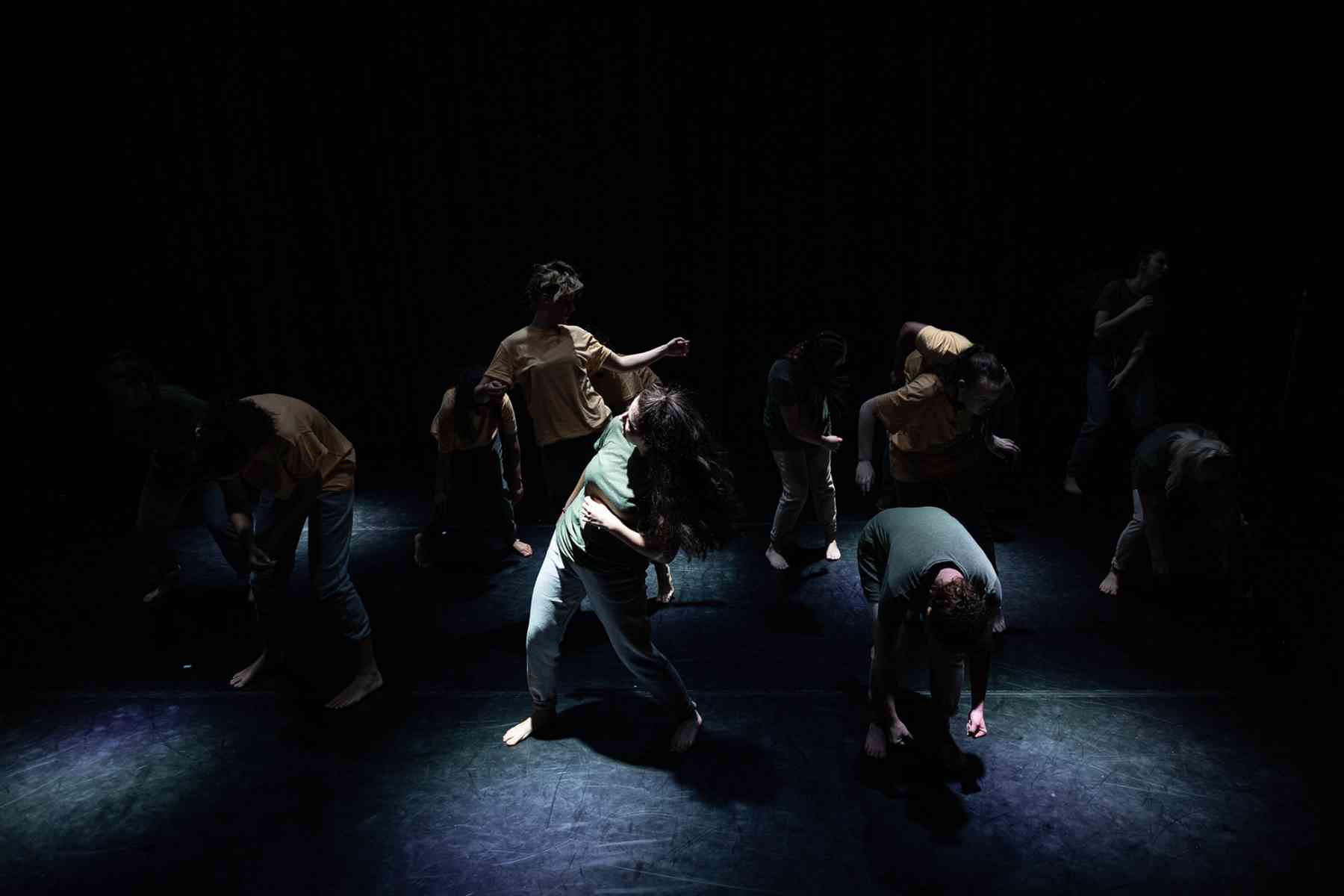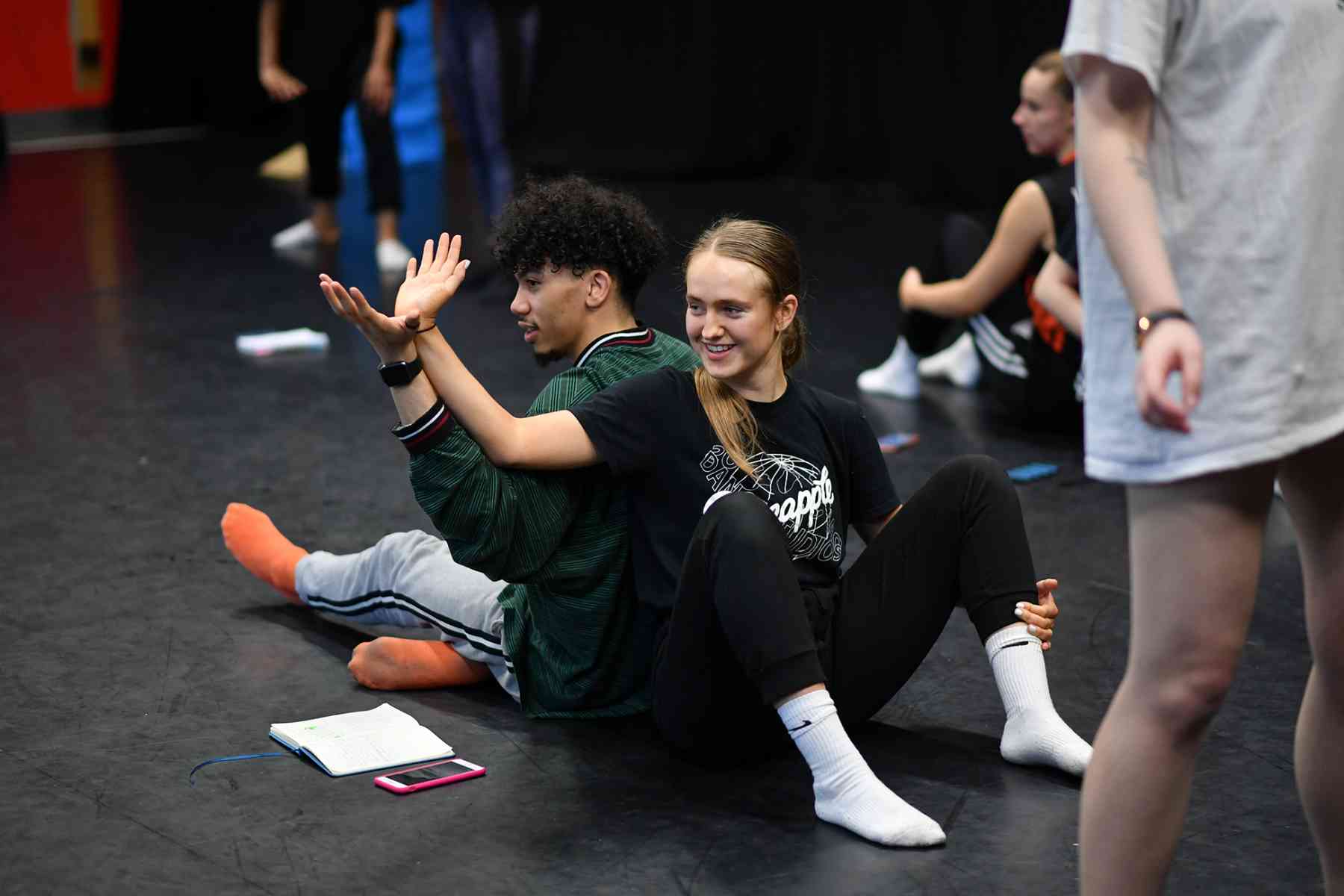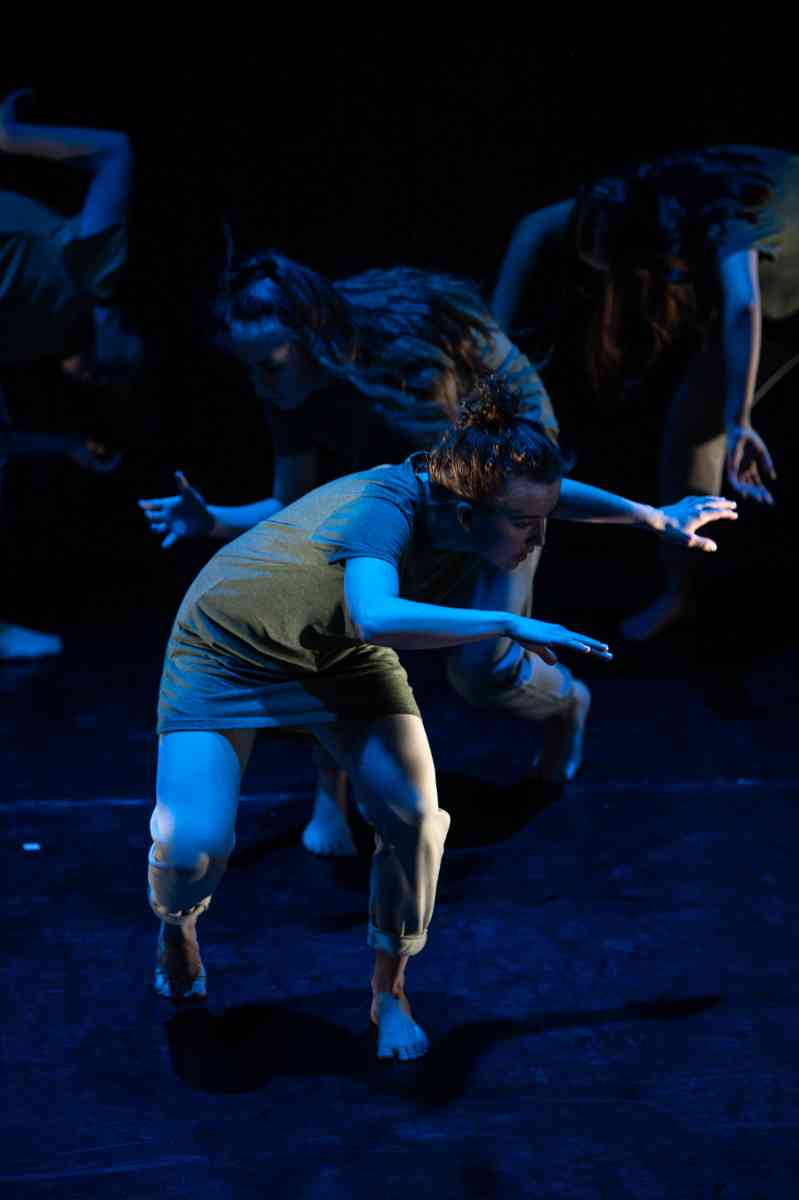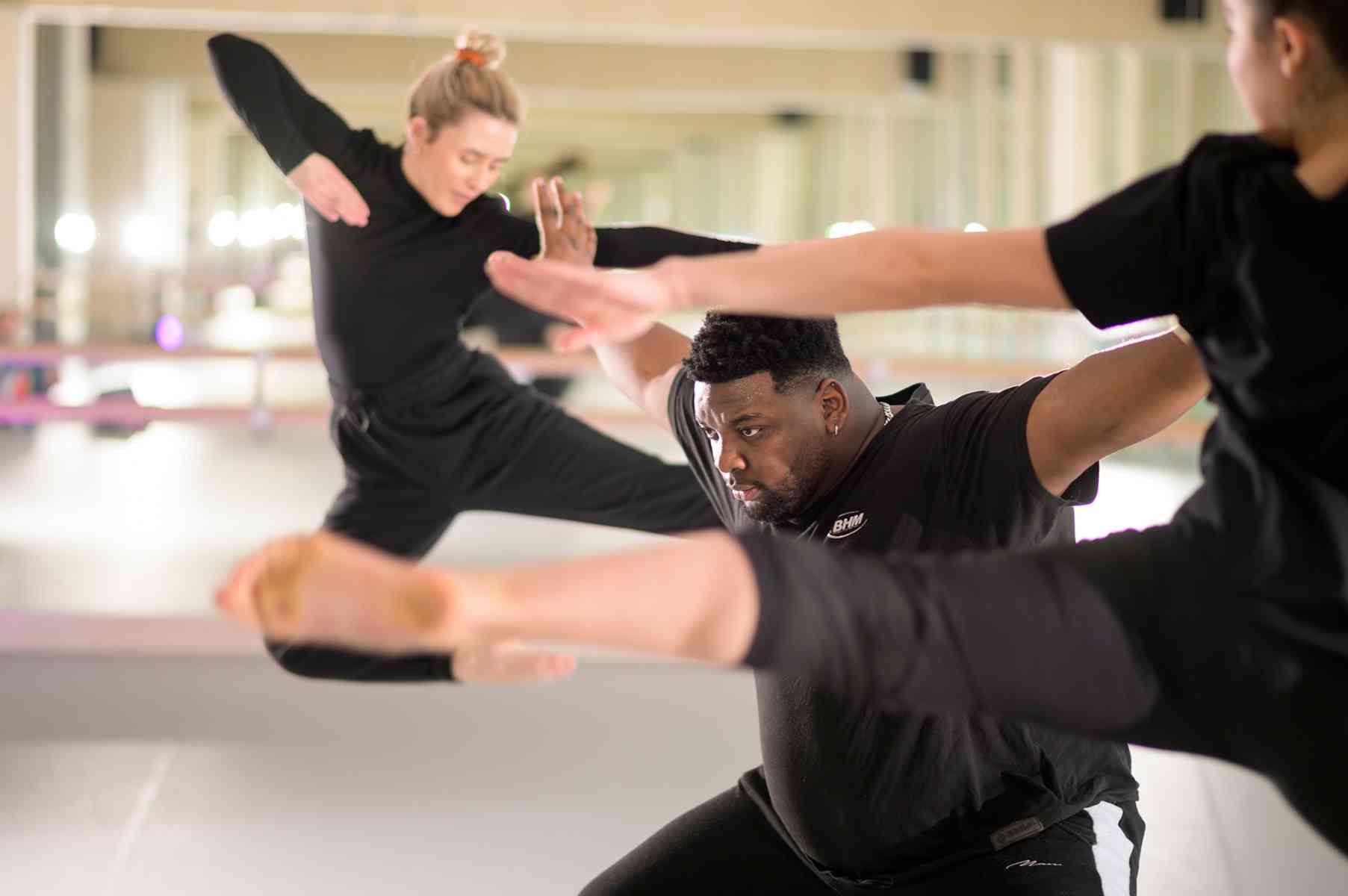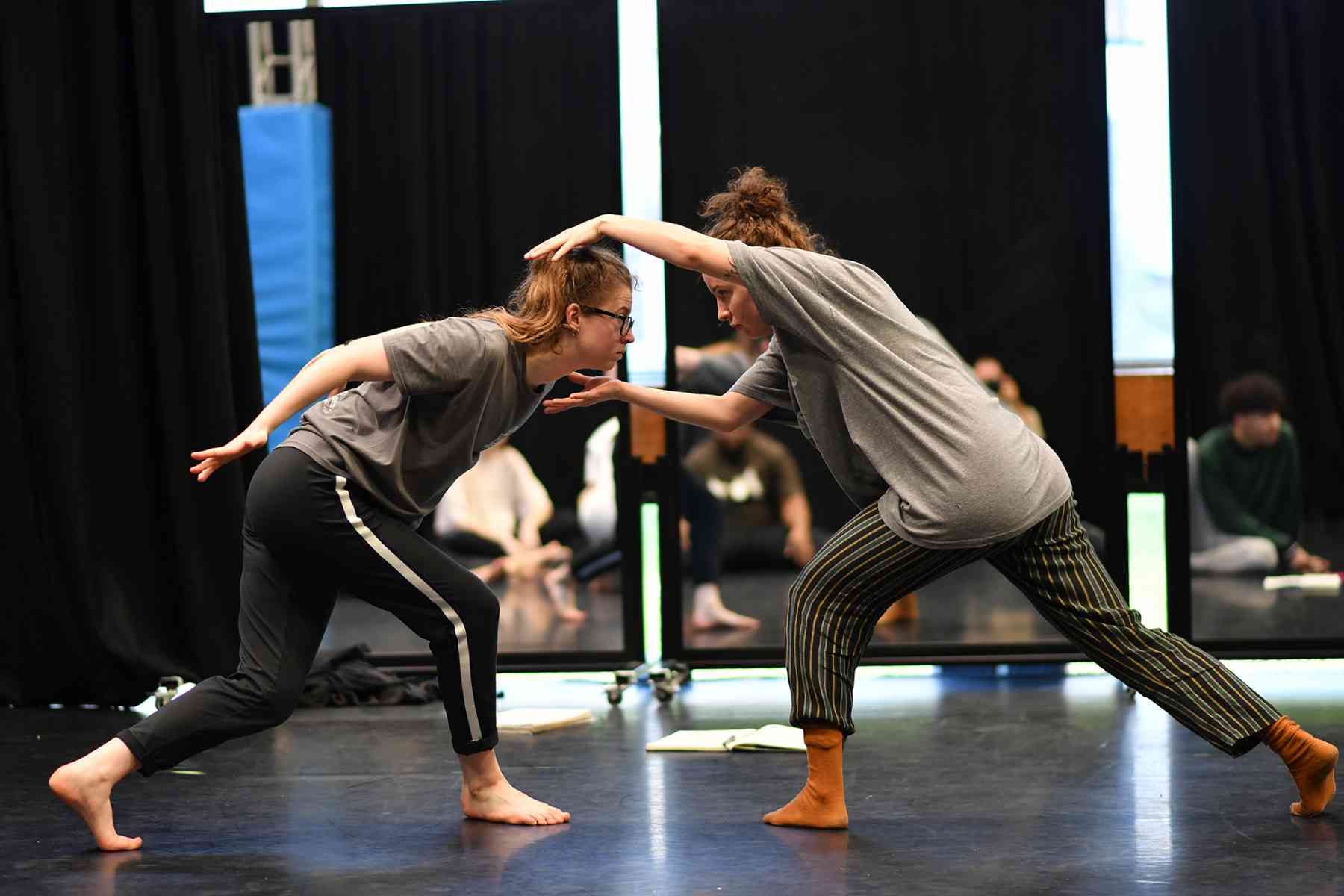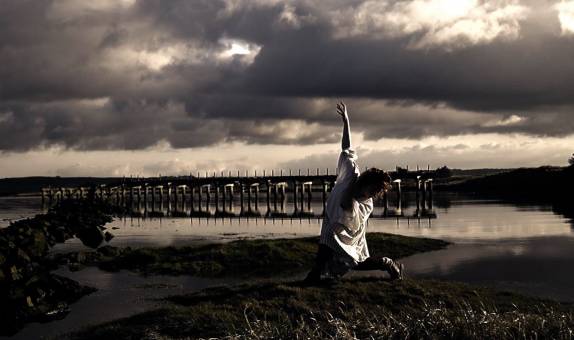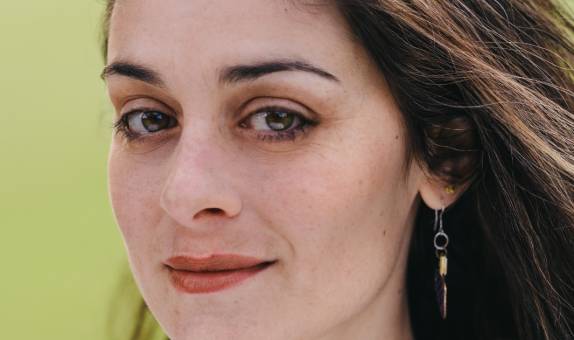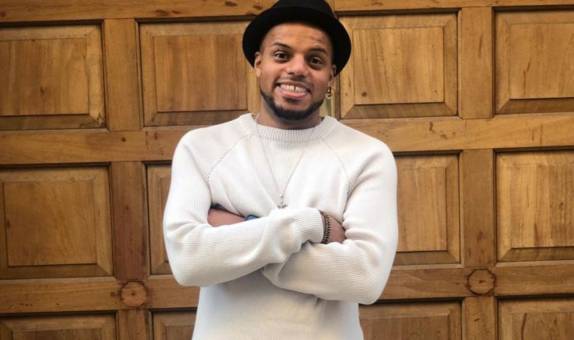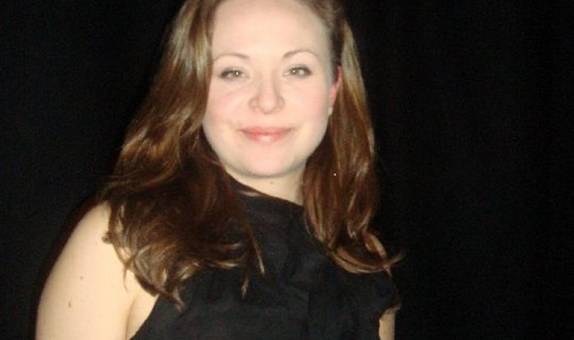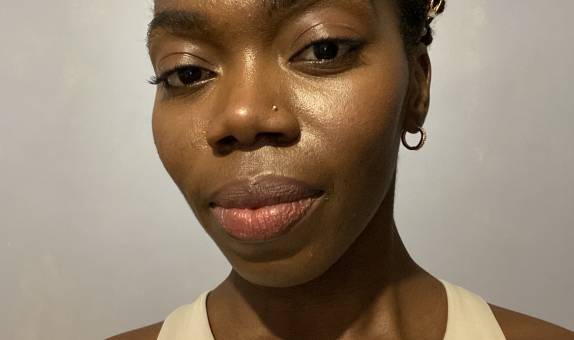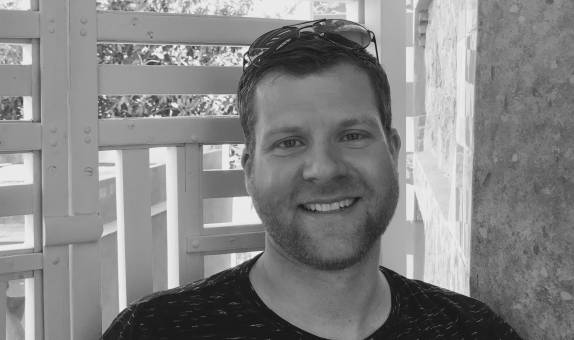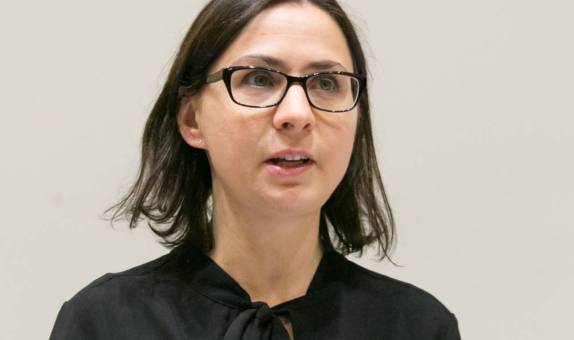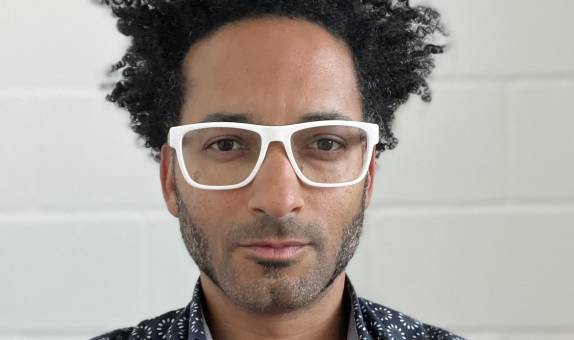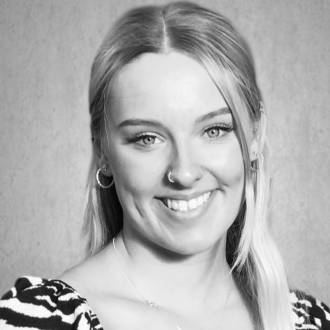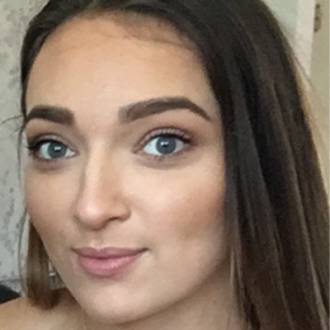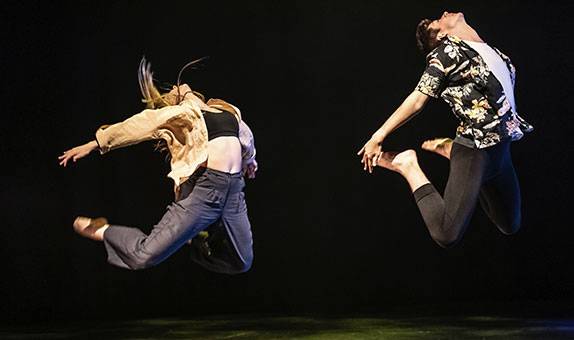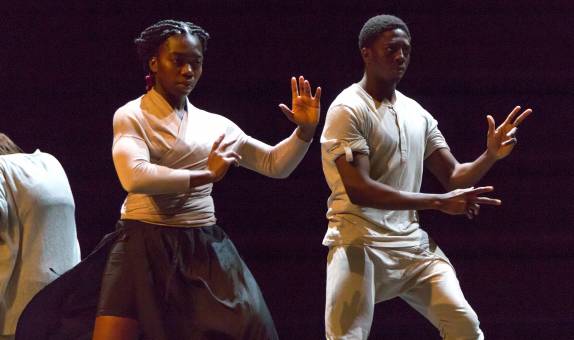Dance BA (Hons)

Teaching Excellence Framework (TEF) Gold award
Our commitment to high quality teaching has been recognised with a TEF Gold rating. The University has received an overall rating of Gold, as well as securing a Gold award in the framework's two new student experience and student outcomes categories.
Why choose this course?
If you want to study dance and performance practically, but also want an understanding of their history and the current dance industry, this is the course for you. Whatever your dance experience and background is, this course enables you to experiment and explore your creative potential, preparing you for a career in the dance or creative arts industries.
You'll develop your own dance identity by studying a variety of topics, such as choreography, dance technique and performance, and the dance industry, with a particular focus on teaching dance or event management.
The course is forward-thinking and emphasises the importance of equality, diversity and inclusion that makes the dance industry a vibrant and exciting place to work. There are opportunities to undertake a work placement or professional project or collaborate across disciplines (such as with a composer or filmmaker).
You'll work in a range of workshops and technique classes, across a range of dance and performance styles, for example:
- hip hop dance styles
- African
- classical Indian dance
- contemporary dance and contact improvisation
Throughout the three years you will gain a valuable insight into the dance industry through the Dance Industry modules, which prepare you for employment after graduating.
There is the option to specialise in choreography or Hip Hop and Urban Performance Practices in Years 2 and 3, and work as a dance company in Year 3.
The course also capitalises on London's vibrant multicultural dance scene, enabling you to access well-known dance centres such as Sadler's Wells, the South Bank Centre, the Barbican and the Place.
Check out what we are up to on our Kingston Uni Dance Instagram.
| Attendance | UCAS code/apply | Year of entry |
|---|---|---|
| 3 years full time | W500 | 2024 (Clearing) 2025 |
| 6 years part time | Apply direct to the University | 2024 (Clearing) 2025 |
Please note: Teaching on this course may take place on more than one KU campus.
| Main Location | Penrhyn Road |
Reasons to choose Kingston
- The University's RIBA award-winning Town House building has six dance studios, all equipped to professional standards with fully sprung floors, mirrors and barres, and a performance studio theatre.
- You'll learn from professional dance companies. There are guest workshops and in-house residencies from the likes of What is Written? Dance Company.
- You'll study a range of styles, including hip hop, dances of the African diaspora and contemporary dance.
The Art School Experience
As part of Kingston School of Art, students on this course benefit from joining a creative community where collaborative working and critical practice are encouraged.
Our workshops and studios are open to all disciplines, enabling students and staff to work together, share ideas and explore multi-disciplinary making.

Gallery of student work
What you will study
By the time you graduate you'll have gained real-life experience of the dance industry, and developed skills for working in it. You will have completed projects that will help kick-start your career. You will do this through learning, making, performing, watching, and discussing dances in new ways, using eye-opening perspectives and developing your professional and employability skills.
As you progress, you will work on projects that draw together different strands of your learning. Across the three years of the course, you will have increasing independence in the design and delivery of these projects.
Year 1
Year 2
Optional Year
Year 3
Year 1 focuses on developing your skills, knowledge and understanding. You will be introduced to the dance industry and set a plan for what you need to do to support your career aspirations. You will develop your technical and performance skills in a range of dance styles and apply these to your choreographic work, dance technique and knowledge. You will also learn about the history of dance, anatomy and dance training.
Core modules
Dance Techniques and Cultures 1
60 credits
This module offers students the opportunity to develop technical and performance skills in a range of diverse dance techniques which reflect the current global dance industry, and to acquire contextual knowledge of dance as a socially and culturally-produced practice.
Students will learn through intensive studio classes led by professionals in the field and interactive seminars. This mixed-mode delivery will enable students to enhance their fitness levels, expand their movement vocabulary, acquire the fundamentals of safe dance practice and engage with relevant case studies and themes within the cultural study of dance.
By integrating embodied knowledge of dance forms with active awareness of their socio-historical contexts, the module allows students to extend their technical and anatomical understanding of specific movement styles/techniques, while exploring how culture is practised through dance.
Students will develop a strong body of practice and techniques from a range of traditions. These will form a foundation for further development and study throughout the course. Students will be able to reflect on the language used in the dance sector and become equipped with the tools relevant for the discussion of the role of history and culture in the practice of different dance forms.
Creating Dance 1
30 credits
This module is designed to develop students' knowledge and understanding of a diverse and inclusive range of fundamental choreograph tools, devices, structures and practices to enable them to create, and perform short choreographic works and start to envision their artistic voice. This module will draw from a diverse range of dance styles and directly encourage students to be adaptable and draw from a range of dance techniques within their practice. Students will be encouraged to use improvisation as a practice for risk taking and developing ideas and exploring a range of source material for performances, such as, visual art, current affairs and music. Reference will be made to the historical development of choreographic practice as well as current choreographic trends and draws on the work of practitioners to enable students to contextualise their work. Students will be encouraged to develop self-practice and independence through the exploration of frameworks analysing movement, reflective practice in the choreographic studio and models for self and peer feedback.
Dance Industry 1: professional skills and personal development
30 credits
This module is designed to help students develop key knowledge and understanding of professional pathways within the dance sector. It will offer opportunities to engage with leading industry professionals through case studies to facilitate an in-depth understanding of professional practices and global contextual challenges. Emphasis will be placed on recognising the roles of who might be stakeholders in the 21st century dance industry, for example, audiences, funders, participants, and venues, and the importance of having a personal and professional narrative in communicating ideas and outcomes.
Year 2, provides you with the opportunities to apply your skills, knowledge and understanding developed in year 1 to the development of projects. Alongside developing your dance technique you will have the opportunity to develop your teaching skills or gain an insight into producing and managing events completing group projects. You will also learn about theoretical frameworks that will help you develop your understanding of the dance industry today and have the opportunity to specialise in either choreography or Hip Hop and Urban performance practices.
Core modules
Dance Industry 2: teaching and producing pathways
30 credits
This module enables students to build on knowledge and understanding of professional pathways within the dance sector explored through prior learning with a particular focus on working in participatory, for example community dance and dance in education settings, producing production settings. It will provide opportunities for students to specialise through two distinct pathways but both interrelated; working as a teacher in a range of participatory settings, including formal education and community contexts. Or, as a producer working in the arts sector. Both pathways examining the synergies between the two employment opportunities. Emphasis will be placed on how the two employment pathways can support the development of the dance and arts sector and the opportunities to become a local, national and global leader within these contexts. During the first teaching block students will select their chosen pathway of either teaching or producing.
Dance Techniques and Cultures 2
30 credits
This module provides students with the opportunity to further develop their technical and performance skills through engagement with learning, developing, refining and performance of dance techniques from contrasting styles (e.g. Hip Hop and contemporary dance styles). Students will learn through intensive practical classes led by professionals in the field, accompanied by seminars to support their ability to critically reflect on their development. There will be regular opportunities to present their work, experimenting with a variety of communication technologies and reaching multiple audiences.
Dance and the Global Now
30 credits
This module offers students key frameworks and embodied application to develop a comprehensive understanding of dance in an interconnected world, reflecting on the relationship between the local and global dimensions of current movement practices. This includes exploring and critically evaluating the possibilities and formats of dance in a rapidly changing world and engaging with topical issues that relate to historical, social, pollical and cultural contexts, such as the climate crisis, interculturalism, difference, migration and gentrification. The module supports the development of critical, analytical and embodied knowledge of a range of movement-based creative practices through classroom-based and practical workshops. For example, the application of dance to social contexts, site-specific and popular dance performance and the experimentation with urban and hybrid movement vocabularies. It also covers the role of dance in the context of activist and socio-political practices, and of the changing relationships between dance and its audiences through practice-based exploration and application.
Creative Practices
30 credits
This module provides you with the opportunity to develop your creative practice as a dance artist developing technical, creative and performance skills through one of two electives: choreography or hip hop performance practices.
Through a combination of practical and theoretical learning this module develops necessary skills and knowledge to become critically aware, articulate and accomplished practitioners in a specialist area of dance practice. The module will enable you to develop an applied understanding of the significance of the aesthetic, kinaesthetic and creative foundations of choreographic practice or hip hop performance practices.
Emphasis within this module will be placed on the need for risk taking during the creative process and you will develop your practices through project-based learning to develop a range of artistic experiments applying your contextual knowledge to develop work for a range of settings. There will be opportunities you to collaborate with students across electives through projects that explore different performance outputs, for example, site-specific performance and screen dance.
You have the option to take an additional year to study abroad.
The focus of Year 3 is about preparing you for graduation and opportunities to work independently and lead your own projects. You will have the opportunity to undertake a placement or develop your own industry-based project, work as a member of a Dance Company with a choreographer and tailor the rest of your study to your own interests.
Core modules
Dance industry 3: placement and professional skills
30 credits
This module is designed to prepare students for graduation and employment as future leaders within the global dance and arts sector. It enables students to personalise their learning and development through leading a project or undertaking a placement. These opportunities will develop their professional identity they explored through prior learning.
Dance Company
30 credits
This is a practical module designed to take students through the process of making a dance production, from initial conception to final performance whilst also further developing and applying advanced levels of dance techniques and dance training. The focus of the module is to provide students with the experience of being in a dance company and of working closely within professional contexts of training, creating, refining and consolidating final production pieces suitable for professional performance environments. Students will apply ideas and creative problem-solving skills acquired through prior learning, in more diverse performance settings. Students will work in company environments with their choreographer both in scheduled learning time and during independent study hours to create, rehearse and produce full-scale dance-based productions. Students will work in companies led by a module tutor with choreographic experience. The companies will be set by timetabled classes.
Dance Techniques and Training
30 credits
This module provides you with the opportunity to extend your dance training through exploration of advanced techniques for the physical training of a variety of employment opportunities in the dance industry. For example, performers, dance artists, choreographers and teachers.
You will explore current approaches to dance training through the study of dance techniques, anatomy, physiology, performance preparation and principles of dance training used within the dance science and education training sector. In teaching block one you will participate in dance technique classes and dance training labs to support your own training and development.
Dance Project
30 credits
This module provides you with the opportunity to develop and produce a dance project of your choice. It will enable you to develop leadership, communication and organisational skills whilst experimenting, innovating and producing an output that aligns to your interests by following one of three electives: choreography (live and screen), hip hop, or research and practice as research.
The module also enables you to draw on all aspects and disciplines explored throughout the course to support your emerging professional identity as a future leader and becoming an articulate and socially aware entrepreneur in the dance industry. This prepares you to seek work in the private commercial and public arts sectors as a choreographer, dancer, dance artist, teacher, producer or researcher.
Please note
Optional modules only run if there is enough demand. If we have an insufficient number of students interested in an optional module, that module will not be offered for this course.
Future Skills
Knowledge to give you the edge
Embedded within every course curriculum and throughout the whole Kingston experience, Future Skills will play a role in shaping you to become a future-proof graduate, providing you with the skills most valued by employers such as problem-solving, digital competency, and adaptability.
As you progress through your degree, you'll learn to navigate, explore and apply these graduate skills, learning to demonstrate and articulate to employers how future skills give you the edge.
At Kingston University, we're not just keeping up with change, we're creating it.

Entry requirements
If you would like to join us through Clearing 2024, please call our Clearing line on 0800 0483 334 (or +44 020 8328 1149 if you are calling from outside the UK) and speak to our friendly and knowledgeable hotliners who will be able to provide information on available courses and will guide you through your options.
Please note the entry requirements listed below are for 2025 entry only.
Teaching and assessment
Scheduled learning and teaching on this course includes timetabled activities including lectures, seminars and small group tutorials.
It may also include critiques, project work, studio practice and performance, digital labs, workshops, and placements.
Who teaches this course?
You will be taught by a team of leading industry professionals and academics who have trained at or been employed by some of the world's leading artists, companies and academic institutions including: New Adventures, Richard Alston Dance Company, Trinity Laban, Greenwich Dance, Rosie Kay Dance Company, Akademi and London Contemporary Dance School. You will also work with dance artist and companies through guest workshops and in-house residencies.
Facilities
Dance is based in the University's flagship building, the Town House, designed by award-winning Grafton Architects. It features three large dance studios, each equipped to professional standards with fully-sprung floors, mirrors and barres, and studio theatre.
Fees and funding
Additional costs
Depending on the programme of study, there may be extra costs that are not covered by tuition fees which students will need to consider when planning their studies. Tuition fees cover the cost of your teaching, assessment and operating University facilities such as the library, access to shared IT equipment and other support services. Accommodation and living costs are not included in our fees.
Where a course has additional expenses, we make every effort to highlight them. These may include optional field trips, materials (e.g. art, design, engineering), security checks such as DBS, uniforms, specialist clothing or professional memberships.
After you graduate
Career options include performance, choreography, directing, community dance, teaching or producing and managing dance. Outside the performing arts, graduates work in production, event management, fitness instruction, media and teaching.
A career in dance
What our students and graduates say
Key information set
The scrolling banner(s) below display some key factual data about this course (including different course combinations or delivery modes of this course where relevant).
Course changes and regulations
The information on this page reflects the currently intended course structure and module details. To improve your student experience and the quality of your degree, we may review and change the material information of this course. Course changes explained.
Programme Specifications for the course are published ahead of each academic year.
Regulations governing this course can be found on our website.
